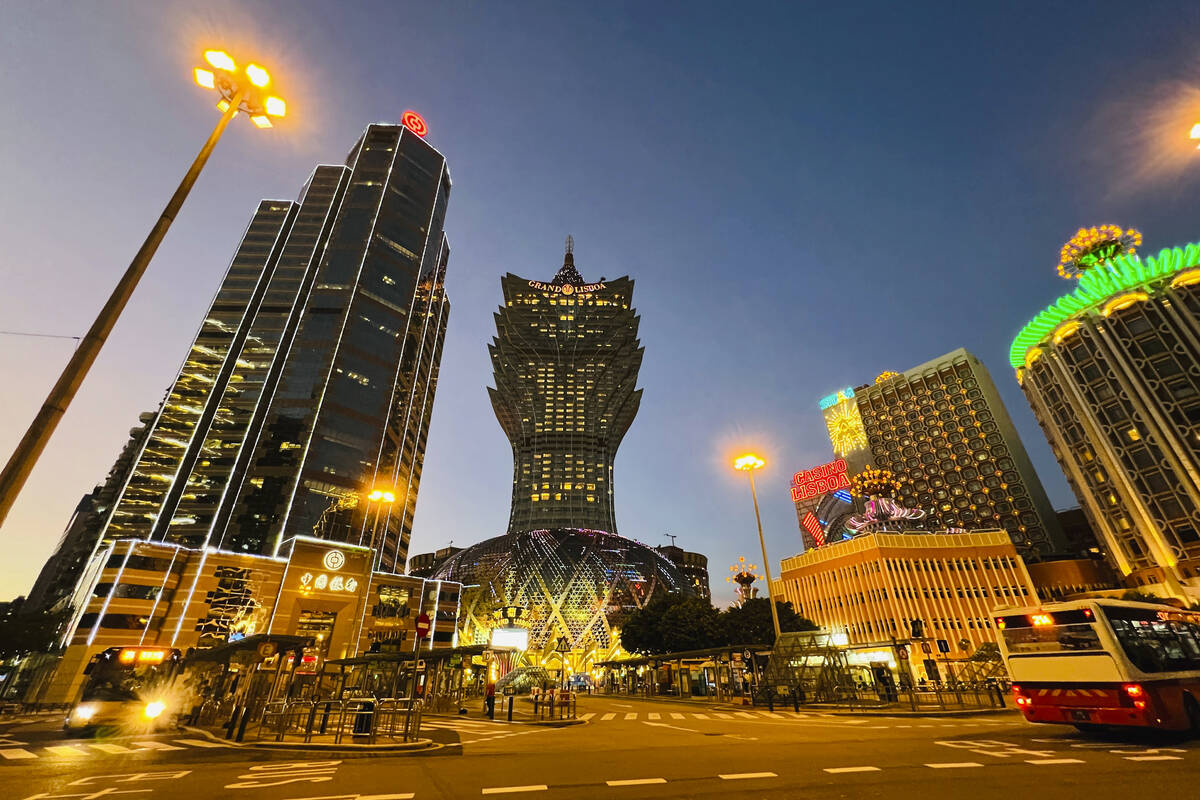Disappointing gaming revenue in Macao saddle casinos
Macao reported another disappointing month of gaming revenue in November with the region reporting winning $374.4 million, a 55.6 percent decline from November 2021.
Macao’s Gaming Inspection and Coordination Bureau on Thursday said the region has had only one month — February — in which the region’s 39 casinos made more money than they did a year earlier.
November’s total brought the 11-month gaming revenue total to $4.83 billion, just over half what it made in the same period last year.
Macao continues to be handicapped by travel restrictions and border closures imposed to stop the spread of COVID-19. The Chinese central government has a zero-COVID policy, meaning health administrators are ordering people to be quarantined for several days if they test positive for the disease.
Macao is important to three Las Vegas companies that have operations in Macao, market leader Las Vegas Sands Corp., Wynn Resorts Ltd., and MGM Resorts International.
Those three companies received positive news Saturday when the region’s six current licensees received provisional concessions to continue operating in the Chinese enclave for the next 10 years. They’ll receive final concession approvals by January.
Annual revenue from casino gambling in Macao peaked at $45 billion in 2013, but declined after Beijing imposed tighter restrictions on how often mainland gamblers could visit.
By 2019, gambling revenue sank 19 percent from 2013’s level to $36.4 billion. In 2020, it plunged 80 percent to just $7.6 billion. Last year, revenue climbed back up to $10.8 billion, but that is down 75 percent from 2013.
How important is Macao to the local companies?
For Sands, Macao properties accounted for 58.6 percent of the company’s revenue in 2015. That year, Macao’s resorts produced $6.9 billion of the company’s $11.7 billion in revenue. The flagship Venetian Macao had an average daily room rate of $223, and its occupancy rate averaged 83.5 percent for the year.
Five years later, in 2020, after COVID-19 struck — and Sands had opened its new Parisian property — Macao’s resorts produced $1.7 billion of the company’s total $2.9 billion in revenue. The Venetian Macao reported an average daily room rate of $167 and the occupancy rate was 49.3 percent.
Some analysts believe the three American companies are in a difficult position because the Chinese haven’t wavered from its zero-COVID policy, but the operators have invested billions of dollars in infrastructure in Macao and will be required to provide even more with the new licensing agreements.
I. Nelson Rose, gaming expert and a professor emeritus at Whittier College, said operators will have to spend at least $1.27 billion on non-casino developments over the next decade in addition to paying higher taxes on gaming revenue they generate.
New rules that came with approval of the license renewal say casinos in Macao will now have to pay a tax rate of 40 percent, up from the previous 39 percent, one of the highest in the world.
The Review-Journal is owned by the Adelson family, including Dr. Miriam Adelson, majority shareholder of Las Vegas Sands Corp., and Las Vegas Sands President and COO Patrick Dumont.
Contact Richard N. Velotta at rvelotta@reviewjournal.com or 702-477-3893. Follow @RickVelotta on Twitter.


















